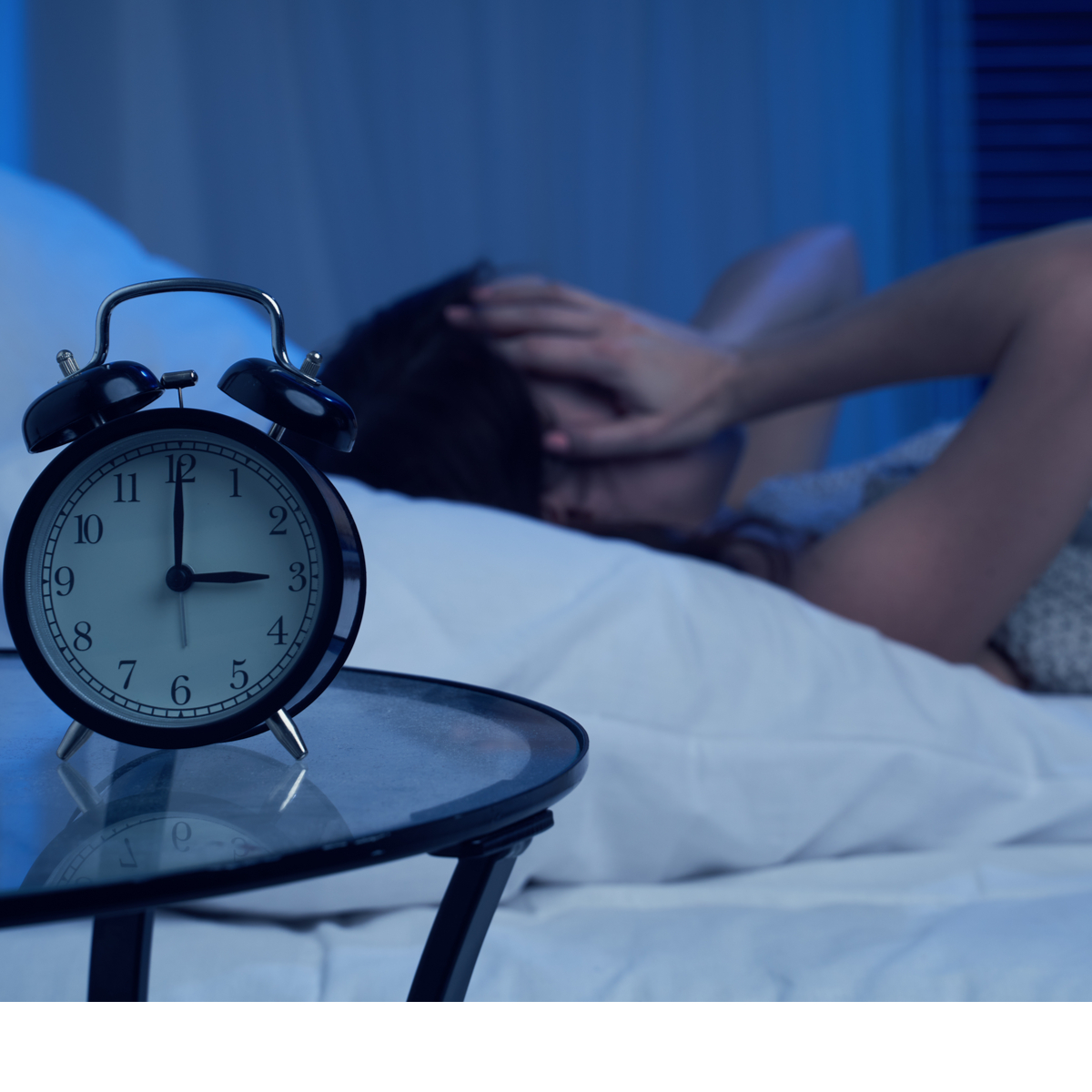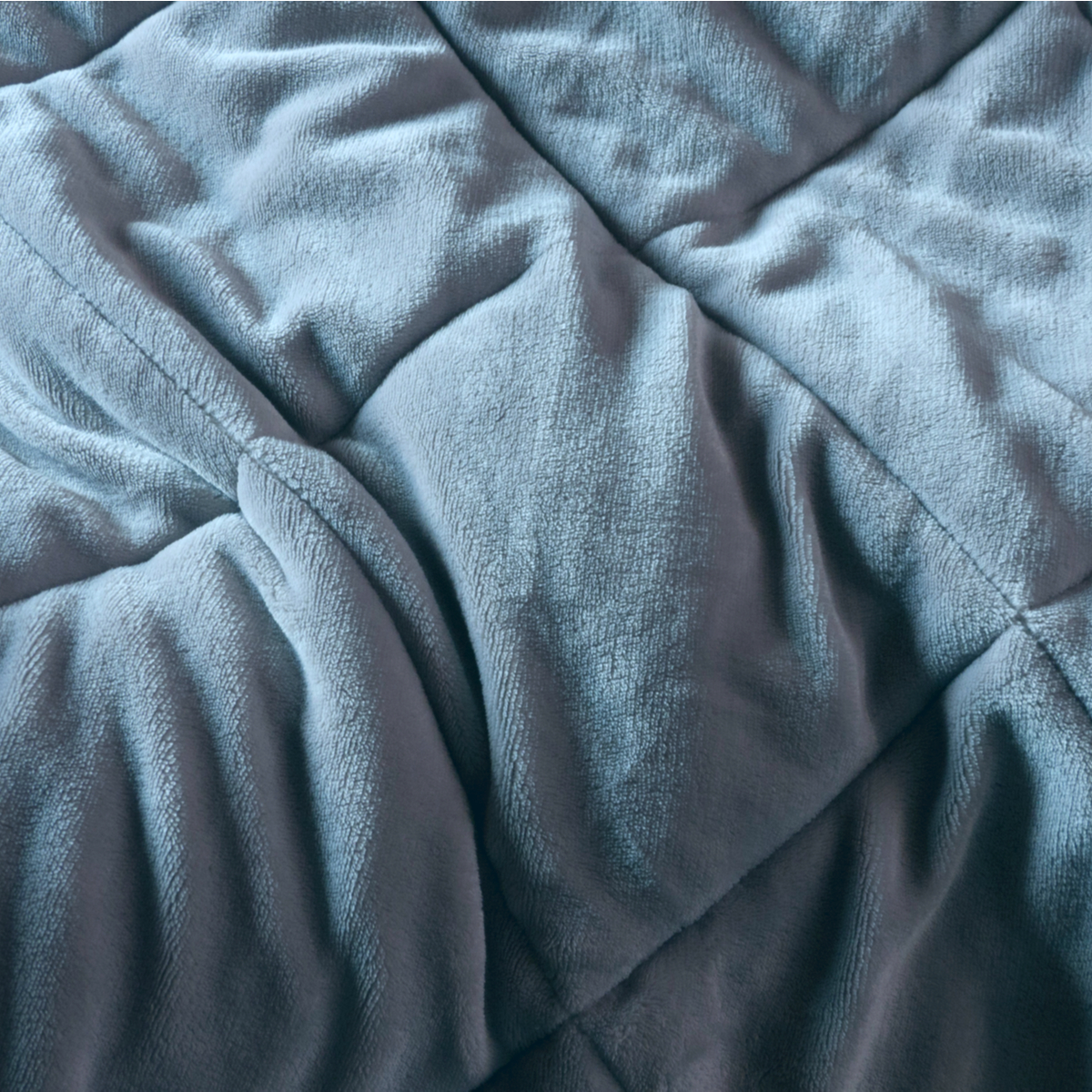Weighted blankets get some flack as a trendy thing that people can’t stop talking about, but hear me out. I, too, was skeptical, so bought two 10-pound blankets (what was available at the time), and tried them.
Five ways weighted blankets helped me (details below):
- Calming sensation – relaxing, reduced anxiety
- More restful sleep – less tossing & turning
- Longer sleep – fewer nights waking up for hours at a time
- Fewer nightmares – able to sleep peacefully
- Day time – blankets on shoulders or lap were calming, increased focus
For a few years now, I have been an extremely restless sleeper, tossing and turning and waking up frequently, sometimes for hours at a time. On top of that, I often had severe nightmares.

nightmares.
I did a lot of research after reading that weighted blankets scientifically calm you. Penn State Medicine says:
When you’re stressed, your heart beats too quickly. When this happens, lowering your heart rate can lead to overall feelings of calmness. Pressure calms you by activating your parasympathetic nervous system, which lowers your heart rate when you’re stressed. A lower heart rate leads to the overall feeling of calmness that the blanket provides.
A weighted blanket uses “pressure therapy” — using a calm-inducing amount of pressure on your entire body, similar to the feeling of being hugged, swaddled, stroked, or held.
Out of sheer curiosity, with nothing to lose, I figured it was worth a try. After all, it appeared from research that weighted blankets did help people with anxiety and insomnia, and Psychology Today noted that:
Many people describe the feeling of a weighted blanket as like being held in a gentle hug. Weighted blankets apply light, even pressure over the entire body…the changes to nervous system activity that come from deep pressure stimulation are accompanied by a cascade of changes to hormones, which also contribute to lower anxiety and generate feelings of calm. These hormonal changes can also be beneficial for sleep.
The first time trying the blankets, there was an immediate, very tactile, and delightful sensation of calm. It was much more pronounced than I would have guessed. And the blankets still create that same, “ahh, very nice,” sensation each time I get into bed and pull the blankets over me. Typically, one might have a single heavier weighted blanket, but because of the pandemic supply/demand and only finding 10-pound blankets available, the two lighter ones work (one over my chest and one over my legs works great for me).

Simply put: I did sleep much better. For more hours, and without waking up as much. Also, and extremely important, the frequency of nightmares diminished greatly (I have prior trauma as a domestic violence survivor). For me, either one of these things would have been a big deal. So, to get more sleep and more restful sleep, plus fewer nightmares, was pretty amazing.
Also, the constant stress and unknowns of Covid may induce sleeplessness or bad dreams/nightmares in more people today, possibly even for people who didn’t have many sleep issues before. (Stress can lead to nightmares.) So even if bad dreams are new to you, weighted blankets might help reduce them.
Harvard Women’s Health Watch says,
Weighted blankets have long been used for certain conditions. They may provide benefits for people with insomnia and anxiety… The blankets are supposed to work much the same way tight swaddling helps newborns feel snug and secure so they can doze off more quickly. The blanket basically simulates a comforting hug, in theory helping to calm and settle the nervous system.
Occasionally I also take a weighted blanket and put it on my shoulders or lap while working or even watching a movie, and the calming feeling is so sudden and welcome.

To put it bluntly, there was no way I would have believed, without trying one myself, that weighted blankets could have such a distinct, positive effect on my sleep.
Although not making any recommendations, without doubt, I can say – as someone who has often had insomnia and nightmares – weighted blankets helped me quite a lot, personally. Everyone is different, and I can only share my own experience. So, for anyone curious about weighted blankets, since they are fairly inexpensive (although prices vary, especially online due to high weight charges for delivery, bargains can be had at retailers if blankets are in stock, around $15-25 for a 10-pound blanket)… if you can’t sleep well or have nightmares, they might be worth a try.
Have you tried weighted blankets? What was your experience? Please share in the comments.


